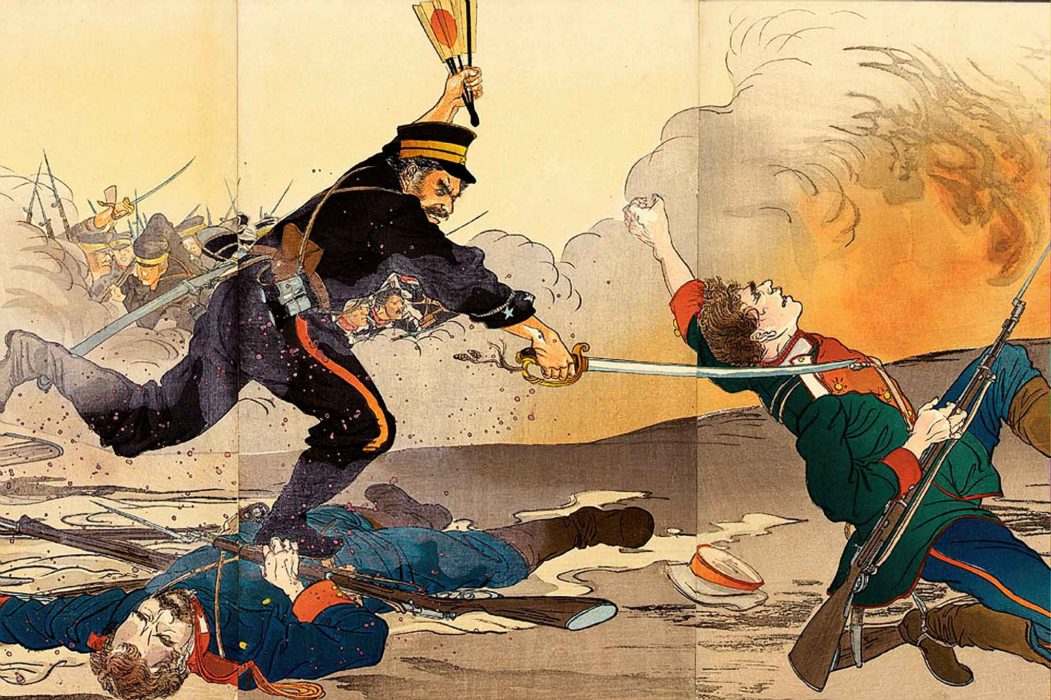NIKOLAY ALEXANDROVICH ROMANOV WROTE an unexpected letter. Or, rather, his Foreign Office did. Czar Nicholas II, as he is better known, had only reigned in Russia for a little less than four years. It was August 24, 1898.
“In the course of the last twenty years,” the letter read, “the longings for a general appeasement have become especially pronounced in the consciences of civilized nations.”
Then, out of the blue, the Czar denounced the emerging arms race.
“Hundreds of millions are devoted to acquiring terrible engines of destruction, which, though today regarded as the last word of science, are destined tomorrow to lose all value in consequence of some fresh discovery in the same field.”
“The economic crises . . . and the continual danger which lies in this massing of war material, are transforming the armed peace of our days into a crushing burden, which the peoples have more and more difficulty in bearing. It appears evident, then, that if this state of things were prolonged, it would inevitably lead to the very cataclysm which it is desired to avert, and the horrors of which make every thinking man shudder in advance.”
Czar Nicholas’s Rescript invited the Great Powers to a conference to address, once and for all, the problem of disarmament. He hoped that it would be “a happy presage for the century which is about to open.”
This was before Nicholas’s Imperial Guard would gun down 1,000 peaceful protestors outside the Winter Palace in St. Petersburg; before the Black Sea Fleet would mutiny; before the Bolsheviks would pull him down from his throne and slaughter his children alongside him.

The meeting began on a perfect spring morning, May 18, 1899—which also happened to be the Czar’s thirty-first birthday—at The Hague in the Netherlands. The city had spared no expense. Flags from each of the participating nations flew from civic buildings and embassies, hotels and houses. Before half past nine the diplomatic quarter was abuzz with traffic.
It all went downhill from there. The Czar himself may have been sincere. But before long many of the plenipotentiaries began to suspect that the Russian government had only proposed the disarmament talks out of fear. Britain and Germany were arming rapidly, and Russia, preoccupied with expanding its sphere of control into the Far East, couldn’t keep up, especially when it came to the huge expense of outfitting its army with modern, rapid-fire field artillery. The first Hague Peace Conference set in motion some important long-term trends, such as creating a court for the voluntary arbitration of international disputes—an idea that gathered major public support in America—but the disarmament idea went nowhere.
Just four years later, the Imperial Japanese Navy under Admiral Togo launched a surprise attack on Russia’s Far East Fleet at Port Arthur, in Manchuria, three hours before declaring war. The Czar was shocked at such behavior, and sent armies across the Trans-Siberian Railway to reassert his power. The war raged on land and sea for more than a year, sending more than 150,000 men to their deaths. Finally, the upstart Japanese smashed Russia’s mighty Baltic Fleet at the Tsushima Straits, south of Vladivostok, in the early morning hours of May 28, 1905.
Shortly afterwards in ‘Akká, a group of European visitors asked ‘Abdu’l-Bahá if Russia could have avoided the calamitous war. Yes, they could have, he said. Russia’s peace initiative at The Hague had generated substantial goodwill, but they had failed to leverage it. ‘Abdu’l-Bahá took out a world map and described the Russian frontiers, the movements of the naval battle groups, and the roles of the ships in each, pointing out how Russia could have retreated while buying time to coordinate international pressure on Japan for a ceasefire. He proceeded to explain to his visitors how a comprehensive peace plan could have been put in place.
The Second Hague Peace Conference convened at President Roosevelt’s initiative in 1907. The International Council of Women submitted a petition signed by two million women from twenty countries, and American peace societies made their voices heard. But the Czar, having just survived the Revolution of 1905, was no longer talking about disarmament. The optimistic Americans were still small fish in the ocean of global power, and the conference failed again to address the critical questions.
The third Hague Conference, planned for 1914, would not convene until May, 1999.






